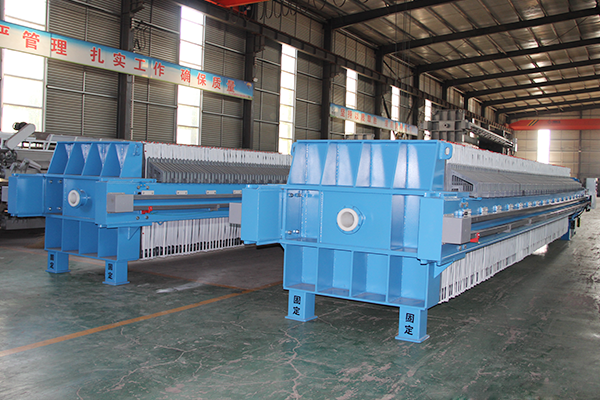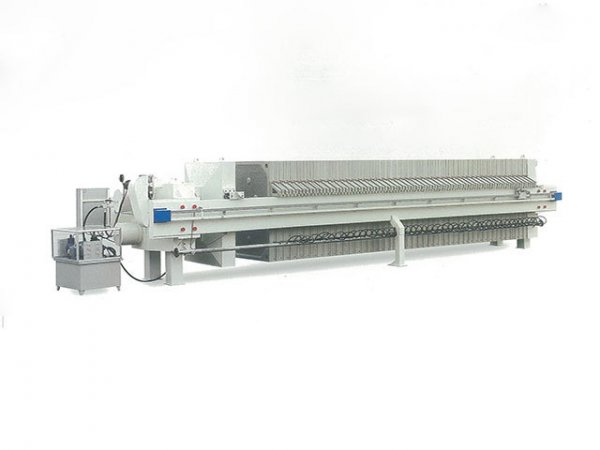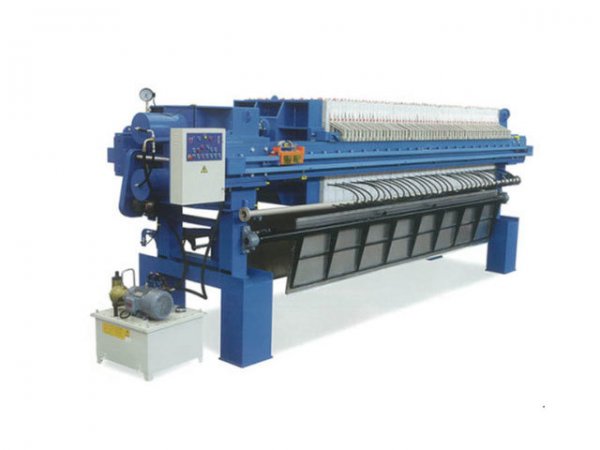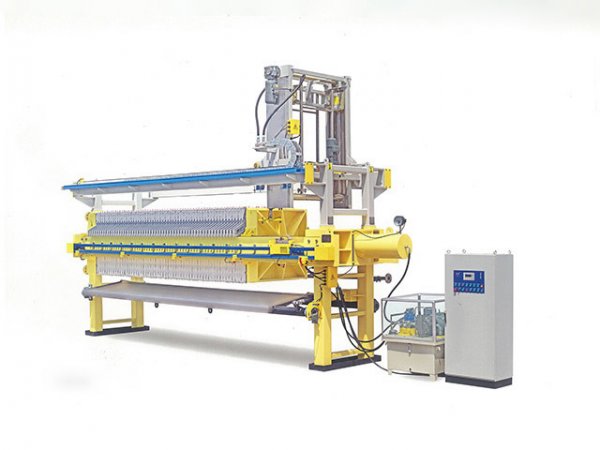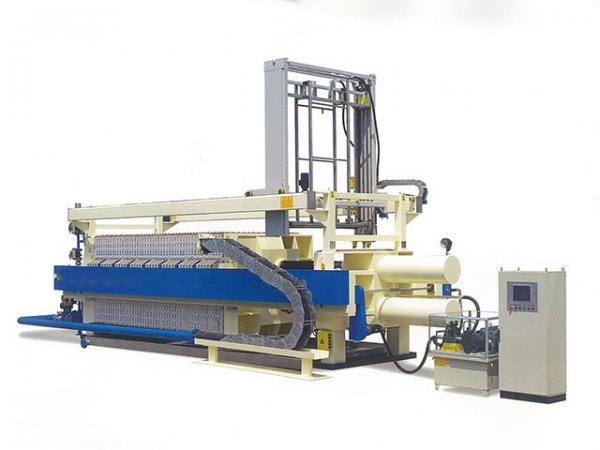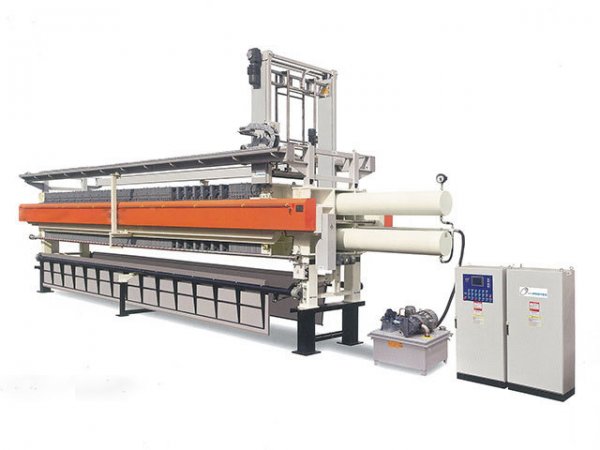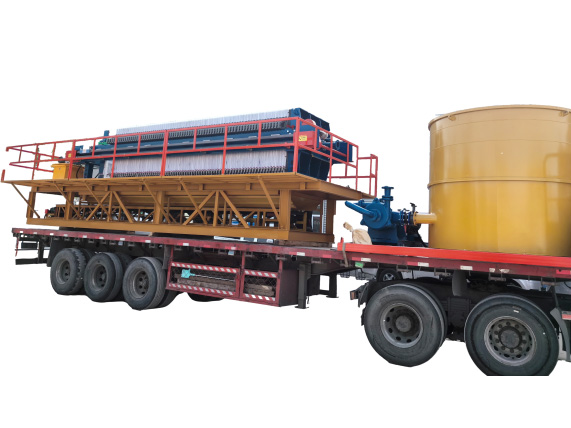NewsDetails
How strong is the corrosion resistance of filter plates in diaphragm filter presses?
author:Shuangcheng time:2025-04-22 11:28:17 Click:124
In modern industrial production, diaphragm filter presses are key equipment for solid-liquid separation and are widely used in various fields. Among them, the corrosion resistance of filter plates directly affects the overall operational efficiency and service life of the equipment.
I. Materials and corrosion resistance of filter plates in diaphragm filter presses
(1) Common materials
Common materials for filter plates in diaphragm filter presses include polypropylene (PP), polyvinyl chloride (PVC), and stainless steel.
Polypropylene filter plates: They have good chemical stability and can withstand most acid-base solutions to a certain extent. They can maintain their properties in general acid-base environments and are not easily corroded.
Polyvinyl chloride filter plates: They are renowned for their corrosion resistance and have good resistance to acid, alkali, and salt solutions. They can work stably for a long time in low-concentration acid-base environments.
Stainless steel filter plates: They inherently have excellent corrosion resistance. Different types (such as 304, 316, etc.) have varying corrosion resistance due to differences in alloy elements. 316 stainless steel, containing molybdenum, has stronger corrosion resistance in environments with strong corrosive media such as chloride ions.
(2) Analysis of corrosion resistance
Acid resistance: Polypropylene filter plates have good tolerance to low-concentration organic and inorganic acids; polyvinyl chloride filter plates are stable within a certain acid concentration range; stainless steel filter plates (especially 316 stainless steel) resist acid erosion by relying on surface passive films.
Alkali resistance: Polypropylene filter plates can withstand certain alkali solution concentrations; polyvinyl chloride filter plates have high stability in alkaline environments; stainless steel filter plates perform well in alkaline environments, but there are differences among different models under high-concentration, high-temperature strong alkaline conditions.
Salt resistance: Polypropylene and polyvinyl chloride filter plates have good performance in salt solutions, with relatively minor corrosion effects; the salt corrosion resistance of stainless steel filter plates depends on the material and solution conditions.
(3) Comparison of different materials
From a comprehensive perspective of corrosion resistance, stainless steel filter plates perform better in harsh corrosive environments but come with high costs; polypropylene filter plates are cost-effective and have good corrosion resistance in general industrial environments; polyvinyl chloride filter plates have unique advantages in specific acid-base environments.
II. Factors affecting the corrosion resistance of filter plates in diaphragm filter presses
(1) Environmental factors
Temperature: High temperatures can enhance the activity of chemical substances and accelerate the corrosion rate of filter plates. For example, at high temperatures, the molecular chains of polypropylene filter plates become unstable, and the passive films of stainless steel filter plates may be damaged.
Humidity: High humidity makes it easy for substances to adhere to the surface of filter plates, accelerating corrosion, especially for materials that are prone to hydrolysis.
Acid-base level: The acid-base level of the working environment determines the type and intensity of corrosion that filter plates face. Extreme acid-base environments can severely corrode filter plates.
(2) Usage factors
Usage frequency: Frequent use subjects filter plates to various effects, accelerating wear and corrosion. For example, in continuously operating diaphragm filter presses, filter plates are frequently subjected to pressure and flushing.
Pressure: Excessive filtration pressure can deform filter plates, damage protective layers or expose internal structures, increasing the risk of corrosion, with welding areas being particularly vulnerable.
Cleaning methods: Improper cleaning can damage the corrosion resistance of filter plates. For example, using strong acid-base cleaning agents can corrode surfaces, and failure to dry after cleaning can also trigger corrosion.
(3) Manufacturing process factors
Surface treatment: It has a significant impact on the corrosion resistance of filter plates. For example, passivation treatment of stainless steel filter plates can enhance passive films, and surface smoothness treatment of other materials can reduce substance adhesion.
Welding processes: Improper welding of stainless steel filter plates can create defects that become weak links for corrosion, and similar issues can occur with other materials.
III. Methods to improve the corrosion resistance of filter plates in diaphragm filter presses
(1) Choosing appropriate materials
Accurately selecting filter plate materials based on the working environment and requirements is key to improving corrosion resistance. For example, in acidic and low-temperature environments, polypropylene or 316 stainless steel filter plates can be considered, while in alkaline environments with cost sensitivity, polypropylene or polyvinyl chloride filter plates are more suitable.
(2) Optimizing usage and maintenance
Correct usage methods: Operating in accordance with operating procedures, controlling filtration pressure and cycles, and avoiding excessive pressure on filter plates and prolonged continuous operation.
Regular maintenance: Regularly inspecting and maintaining filter plates, cleaning dirt, checking for deformation or damage, selecting appropriate cleaning agents, and ensuring drying after cleaning.
(3) Surface treatment and coatings
Surface treatment and coating methods can be used for filter plates prone to corrosion to improve their corrosion resistance, such as electroplating or applying anti-corrosion coatings to stainless steel filter plates and surface modification treatments to polypropylene filter plates.
IV. Conclusion
The corrosion resistance of filter plates in diaphragm filter presses is influenced by a combination of factors, including material, environment, usage, and manufacturing processes. In practical applications, selecting appropriate materials, optimizing usage and maintenance methods, and adopting appropriate surface treatment and coating technologies are crucial for improving corrosion resistance. In the future, the application of new materials and improvements in manufacturing processes are expected to further enhance the corrosion resistance of filter plates, ensuring the application of equipment in more complex environments.
 Recommended Products
Recommended Products
 Contact us
Contact us
—— Contact:Manager
—— Tel:+86 16632826789
—— Email:sales@hbscfilterpress.com
—— Url:http://www.hbscfilterpress.com
—— Address:West Zone of Economic Development Zone, Fucheng County, Hengshui City, Hebei Province

